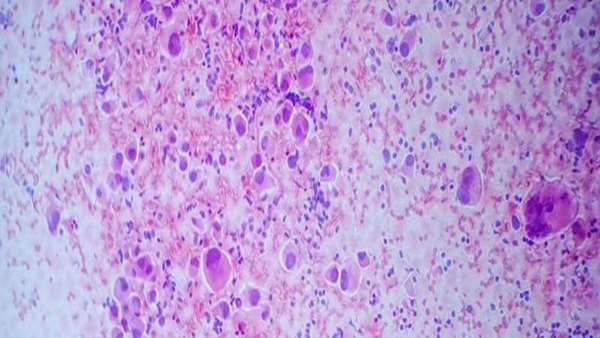Lung cancer is the second most common cancer in the U.S. and the No. 1 cause of cancer related death. Despite considerable progress in treatment options, most lung cancer patients have extremely poor outcomes with an average five-year survival rate of 21.7%. To help identify new drug targets for this patient population, Moffitt Cancer Center researchers are working to improve their understanding of the molecular mechanisms behind lung cancer. In a new article published in Nature Communications, the laboratory of Elsa R. Flores, Ph.D., in collaboration with the Baylor College of Medicine and MD Anderson Cancer Center, shows how the protein ΔNp63 contributes to disease development through the regulation of stem cells and crucial elements known as enhancers, which regulate genes that control cell identity.
One of the prevailing theories of cancer development suggests that alterations in signaling pathways in stem cells may lead to disease development. Stem cells are present throughout all tissues and have the capacity to self-renew and the potential to differentiate into multiple types of cells. The protein ΔNp63 plays an important role in the regulation of stem cells and skin cancers. It is also expressed within the lung; however, little is understood about how it may play a role in lung cancer development.
Given its role in the skin, Moffitt researchers hypothesized that ΔNp63 may have similar functions in the lung. They performed a series of laboratory experiments using preclinical mouse models of lung adenocarcinoma and squamous cell carcinoma, and human cancer cell lines to define the role of ΔNp63 in lung cancer development. They created mice that were deficient for ΔNp63 in the lung and discovered that the mice without ΔNp63 developed fewer lung tumors and had fewer stem cells compared to control mice. These observations suggest that ΔNp63 may function as a tumor promoter and regulate the self-renewal and differentiation process of stem cells in the lung, as it does in the skin.
Next, the Flores lab further investigated the molecular mechanisms controlled by ΔNp63 and discovered the protein regulates the enhancer region of genes involved in cell differentiation and cell identity, with one of the key genes being BCL9L.
Additional studies found that BCL9L mediates the tumor promoting effects of ΔNp63 in the lung cancer subtypes adenocarcinoma and squamous cell carcinoma. Importantly, they also discovered that lung adenocarcinoma patients who have high levels of BCL9L have a poorer prognosis.
"Our findings demonstrate a unifying oncogenic role for ΔNp63 that modulates the enhancer landscape in lung cancer stem cells in both lung adenocarcinoma and squamous cell lung cancer. We will use these findings to develop novel therapeutic approaches to inhibit development of these highly deadly tumor types," said Flores, associate center director of Basic Science and senior member of the Department of Molecular Oncology at Moffitt.
https://medicalxpress.com/news/2022-02-specific-cancer-protein-important-role.html




ارسال به دوستان